
views
Benghazi: British Apache and French attack helicopters struck targets for the first time in NATO's campaign in Libya, hitting Muammar Gaddafi's troops early on Saturday near a key coastal oil town, the alliance said. Hours later, at least eight airstrikes were heard in Tripoli.
The action was a significant step-up in NATO's operations and a major boost to Libyan rebels, just a day after rebel fighters forced government troops from three western towns and broke the siege of a fourth in yet another erosion of Gadhafi's power since the eruption in mid-February of the uprising to end his 42-year rule.
NATO said the helicopters struck troops trying to hide in populated areas, military vehicles and equipment. Lt Gen Charles Bouchard, commander of the Libya operation, said the engagement "demonstrates the unique capabilities brought to bear by attack helicopters."
Until now, NATO has relied on attack jets, generally flying above 15,000 feet (4,500 meters) - nearly three miles (five kilometers) high - and pounding Gadhafi targets in relentless overnight bombings. And eight thunderous explosions from a rare daytime NATO attack were heard Saturday afternoon in Libya's capital. A Libyan government official said it was not immediately clear what was hit.
The helicopters give the alliance a key advantage in close-up combat, flying at much lower altitudes.
The Apaches hit two targets near the eastern oil town of Brega, according to a statement from the Ministry of Defense in London. It said they took off from HMS Ocean, stationed off the Libyan coast and returned safely after completing their mission in the early morning hours.
British Maj Gen Nick Pope said the Apaches targeted a radar installation and a military checkpoint. "Hellfire missiles and 30mm cannon were used to destroy the targets," he said.
Separately from the helicopters, Royal Air Force aircraft destroyed another military installation near Brega and two ammunition bunkers at the large Waddan depot in central Libya, Pope said.
Brega is of strategic importance to Libya's oil industry and lies on the coastal road along the Mediterranean that leads to the capital, Tripoli. In the early days of the uprising against Gaddafi, it went back and forth between rebel and loyalist hands, but later the front line settled to the east of the town, leaving Brega under Gaddafi's control.
Waddan lies southwest of Brega, about 140 miles (220 kilometers) from the coastline.
The French Gazelle and Tiger model attack helicopters took off from the helicopter transport ship Tonnerre in the Mediterranean, said Col. Thierry Burkhard. He said they struck 15 military vehicles and five military command buildings, without identifying the sites or their location.
Burkhard said the French helicopters came under light-arms fire but were not hit or damaged. The operation was aimed at putting "additional pressure on the Gaddafi forces who continue to threaten the civilian population," he said.
British Defense Secretary Liam Fox said Saturday that the "use of the attack helicopters is a logical extension" in NATO's campaign and indicated more would be used in the future.
"We will continue with the methods we have to degrade Gaddafi's command and control, to degrade his supplies," Fox said from Singapore, where he was attending an Asian security conference.
The helicopter strikes came after Libyan rebels on Friday won control of four towns in the western Nafusa mountain range, where government forces have besieged and randomly shelled rebel-held areas for months.
The small rebel force in the western mountains is unlikely to threaten Gaddafi's hold on Tripoli, 45 miles (70 kilometers) northwest, but the victories could bring relief to local residents by opening up roads between their communities. The western mountain population is tiny compared with the large rebel-held territories in east Libya.
Fighting continued Saturday in another part of the mountain range, near the border with Tunisia. A resident of the town of Nalut, Mohammed Jernaz, said via Skype that Gadhafi's forces fired grad rockets, injuring 10 people.
A video posted by Nalut activists on YouTube showed injured men covered with blood being transported in the back of pickup trucks. The video's authenticity could not be confirmed.
The head of the rebels' Transitional National Council, Mustafa Abdul-Jalil, said the NATO helicopter attacks were in accordance with the UN resolution that authorized the international air campaign, but emphasized that the Apaches launched outside Libya.
"We welcome any measures to expedite the departure of Muammar Gaddafi, but at the same time we maintain the sovereignty of the Libyan state," Abdul-Jalil told on Saturday.
Abdul-Jalil and other rebel leaders met with British Foreign Secretary William Hague on Saturday in the rebels' de facto capital, Benghazi. Hague is one of the highest-ranking foreign officials to visit rebel-held territory in eastern Libya. He traveled with another British Cabinet minister, International Development Secretary Andrew Mitchell, on a visit Hague said was to show support for those fighting Gaddafi's rule.
Some 300 residents chanted "Down with Gaddafi!" and "Free Libya!" while Hague visited the public square that has become the symbolic heart of the anti-Gaddafi movement. He offered his condolences to relatives of prisoners killed in the 1996 massacre at the Abu Salim prison, where guards put down a riot by killing about 1,200 men, rights groups say. He also visited injured rebel fighters at a hospital.
The conflict in Libya appears at a stalemate after nearly four months. NATO airstrikes have kept the outgunned rebels from being overrun, but the rebels have been unable to mount an effective offensive against Gadhafi's better equipped armed forces.
Gaddafi's regime has been slowly crumbling from within. A significant number of army officers and several Cabinet ministers have defected, and most have expressed support for the opposition, but Gaddafi's hold on power shows little sign of loosening.
Gaddafi has been seen in public rarely and heard even less frequently since a NATO airstrike on his compound killed one of his sons on April 30. Questions are arising about the physical and mental state of the 69-year-old dictator, who has ruled Libya since 1969.
Rebels have turned down initiatives calling for cease-fires, insisting that Gaddafi and his sons must relinquish power and leave the country.











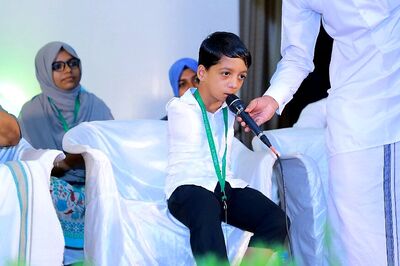

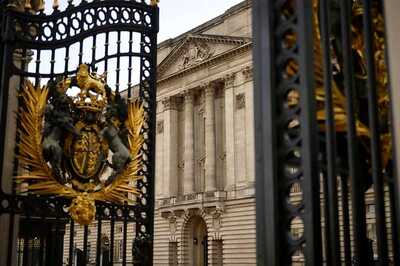
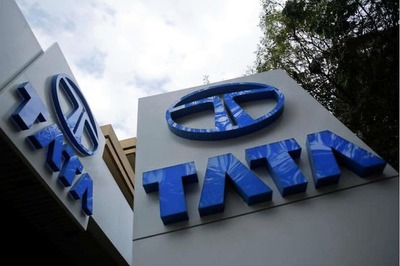

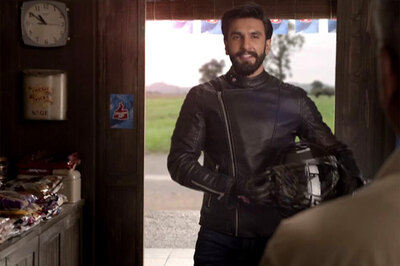

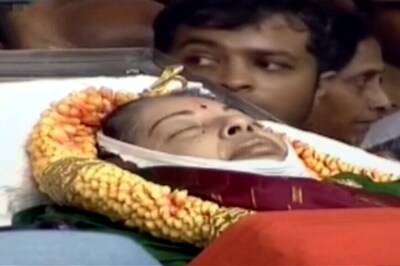

Comments
0 comment